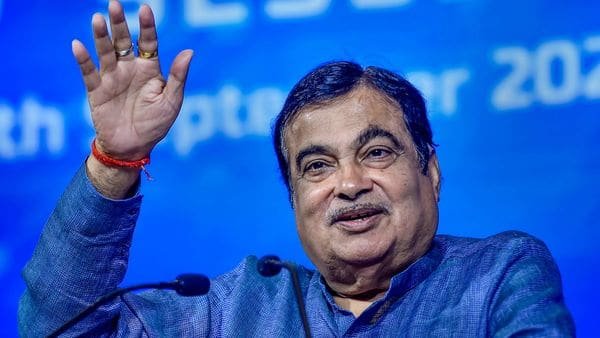Nitin Gadkari, Union Road Transport and Highways Minister, has stressed the use of ethanol in the transport sector. The minister said that the government is promoting ethanol manufacturing in a big way and assured that it will procure all ethanol produced in the country. Gadkari said during a webinar on alternative fule organised by industry body ISMA.
“Govt of India is seriously working to increase the use of ethanol in the transport sector. Currently, the ethanol economy is ₹20,000 crores, which I am targeting to take to ₹2 lakh crores,” Gadkari said during the webinar.
He said the government is planning to introduce flex-fuel engine vehicles with an increased supply of ethanol. With the rollout of flex-fuel vehicles on 100% bio-ethanol, the demand for ethanol will immediately jump by 4 to 5 times, he added.
The minister also asked sugar mills to set up their ethanol pumps. Gadkari said the government is providing export subsidy to the tune of ₹3,000 to ₹6,000 crore to sugar mills for liquidating surplus sugar stocks.
“Due to our commitments to international organisations such as WTO, these subsidies will not be permissible after December 2023,” he pointed out.
He said that India started its programme for ethanol blending with petrol in 2003 but made it mandatory at 5% in 2007. The government brought the fixed ethanol procurement pricing policy in December 2014.
From 2018 onwards, Gadkari said the government has been fixing multiple prices for ethanol, based on the feedstock used to produce ethanol. This encouraged diversion of B-heavy molasses and sugarcane juice into the production of ethanol, he added.
“Now, we have allowed the use of grains like corn, surplus rice, damaged food grains, sweet sorghum, bajra, jawar for the production of ethanol,” he said.
Looking at the ethanol production capacity and its adaptability as a fuel, Gadkari said the government has redesigned and launched the E-20 fuel programme which will ensure the use of bio-ethanol in a 20% blend with petrol by 2025 in India.
To achieve 20% ethanol blending, the country will require around 10 billion litres of ethanol by 2025. At present, the sugar industry contributes to 90% of ethanol demand as a blended fuel in the country.
To increase ethanol production with available resources, Gadkari suggested adding 15-20% sugar into B-Heavy Molasses.
“This will have multiple benefits – firstly, it will utilise an excess stock of around 45 to 60 lakh metric tonnes of sugar and will improve the ethanol recovery by 30% due to better quality of raw material,” he said.
The minister pointed out that the country’s import dependence on petroleum is expected to go up to the tune of ₹15 lakh crore in the next 5 years. “Increased availability of ethanol will directly help in the introduction of flex engines, which we will soon introduce in India,” he said.
Gadkari said that with 100% use of a 20% blend of bio-ethanol, the country will be able to save ₹30,000 crore on the import of fossil fuels. Gadkari emphasised researching how to successfully blend ethanol with diesel.
Besides ethanol, he said the government is promoting the use of clean and green alternative fuels such as Methanol, Bio-diesel, Bio-CNG, LNG, H-CNG, Electricity, and Hydrogen fuel cell in addition to ethanol.





